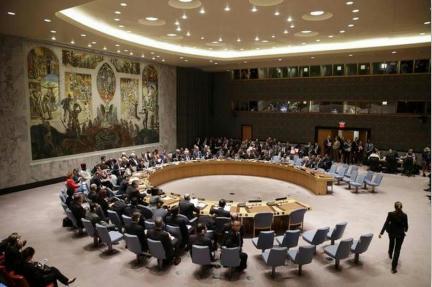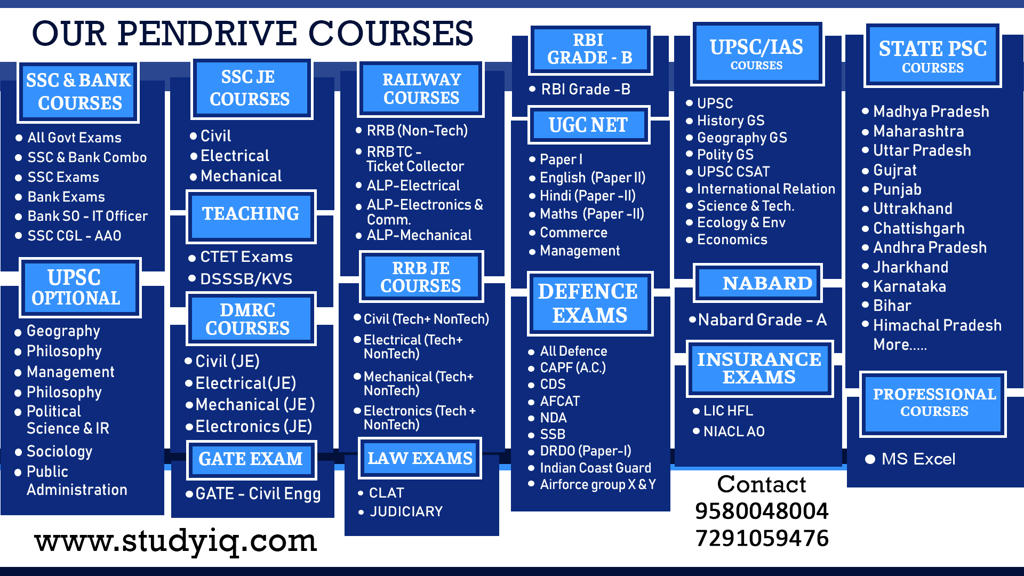Table of Contents
Padding up for the next UNSC innings

- India must give exceptional weightage to how all Security Council issues have an impact on the subcontinent
- Despite the fact that India has served as a non-permanent member of the United Nations Security Council (UNSC) more often than any country other than Japan from the Asia-Pacific Group, it is a matter of satisfaction and a tribute to Indian diplomacy that the Group unanimously decided this year to support India for an eighth second-year term. The elections are to take place in June next year. This means that India’s election is assured and its term will run in the calendar years 2021 and 2022.
- Fast-changing dynamics
- To anticipate what issues will arise during India’s tenure two and three years down the road, in the highest decisionmaking organ concerned with peace and conflict in the global organization, is clearly problematic. The dynamics of international politics are fast moving.
- The Washington consensus of the post-Soviet era, if it ever truly existed, has unravelled in the wake of three factors: tensions between major powers; proxy wars in West Asia, and widespread and scattershot use of threat and economic sanctions by the United States which pursues a militarized foreign policy with a military and intelligence presence in 150 countries, and 800 bases in 70 nations.
- The rise of China and the bogey of Russian aggression are resisted through military and economic measures by Washington, which urges its usually reluctant European allies and others to follow suit. The race is on for supremacy in artificial intelligence, high technology and 5G which will have strategic significance in future decades. In this variable world of incessant jockeying for greater influence among big and medium powers, and where the centre ground for concepts such as strategic autonomy and equidistance has shrunk with rising polarization between the major powers, there are nevertheless some constants. Whether or not the U.S. President Donald Trump is re-elected , the ‘America First’ doctrine will endure in some form since it has the support of a sizeable constituency in that country. This makes U.S. foreign policy more transactional, which in turn will generate less traction to the reform process within the UN and the expansion of permanent membership of the UNSC to which India aspires.
- India can use its term as a non-permanent member to enhance its credentials as a constructive and responsible member of international society, but an upgrading of its status will have to wait until an indeterminate future date. It may be noted in passing that the inclusion of India, Japan, Germany and Brazil in the UNSC, to which package India is formally committed, will create an even greater imbalance in favour of the West versus the Rest in world affairs.
- India is one of the world’s biggest economies, which even the pessimists cannot deny. Accordingly, its voice resonates and is capable of making a significant contribution during its tenure by emphasizing and strengthening multilateralism as a means of making the world safer.
- Multipolar focus
- India needs to uphold the objective of a multipolar world and counter existing trends towards unilateralism, ethno-centrism, protectionism and racial intolerance.
- It should seek to protect the World Trade Organisation from American attempts to undermine it, since the WTO’s dispute mechanism is a resource for developing countries, as is the work of the United Nations Educational, Scientific and Cultural Organization, the UN Human Rights Council and other UN bodies despite the U.S. and a few other countries withdrawing support to them.
- India should attempt to make progress on the non-discriminatory elimination of weapons of mass destruction, protection of the environment against global warming, safeguarding outer space from weaponisation, and enhancing respect for diversity and plurality in world politics.
- India should underline the validity of Article 2 of the UN Charter that provides for state sovereignty and safeguards countries against outside interference in the domestic affairs of other states.
- In upholding respect for a rules-based order in international society, India should underline the sanctity of treaties such as the multilateral accord with Iran endorsed by the Security Council and the Paris Agreement on Climate Change.
- Among country-specific topics that are likely to re-appear before the UNSC are the ‘frozen’ disputes of Cyprus, Palestine, Ukraine and North Korea. On each of these, India has taken a balanced position that needs little reset.
- Kashmir remains on the UN agenda and if the situation in the Kashmir Valley deteriorates, the issue may be revived in the UNSC by Pakistan, although third parties have no enthusiasm for involving themselves in India-Pakistan disputes.
- If reports are true that Mr. Modi is seeking to normalize relations with China during this term in office, it will greatly strengthen India’s position.
- Pakistan and the terror angle
- It bears repetition that the growth of India’s economy and its democratic system are our best insurance policy; witness what China has been able to get away with in respect of the Uighurs. New Delhi’s preoccupation with Pakistan finds its articulation in the subject of international and cross-border terrorism. Although the context is normally couched in general terms, no one is in doubt that the Indian reference is to Pakistan.
- The question of an international convention against terrorism has been under discussion in UN committees for many years, and the UNSC will not be the forum for headway on this. India could use its presence on the UNSC’s sanctions subcommittee to proscribe Pakistan-based militant groups and individuals. But experience shows that this is frankly of dubious benefit when weighed against the effort expended.
- New Delhi will feel in the next few years that its time has come for a major role on the world stage, but big player status will be difficult without India being pivotal in the South Asian region. In this respect, India’s regional status is insufficiently credible. Accordingly, on all issues before the UNSC, India must give exceptional weightage as to how they will have an impact on the Indian subcontinent.
- Demosthenes in Fourth Century BC Athens stated that diplomats had “no battleships at their disposal… their weapons are words and opportunities”. India’s presence on the UNSC will present opportunities to enhance the country’s reputation. American policies in India’s nearneighbourhood towards West Asia, Russia and China present challenges that can be met only with great skill and delicate balance.
- India should aim to end its eighth term on the Council with its merit- and legality-based judgments intact and widely respected.
The makings of a digital kleptocracy

- When data is monetized, as the Economic Survey advocates, it becomes toxic and harms public interest
- Last year, I was denied information requested under the Right to Information Act (RTI) 2005. I had sought the names of agencies empanelled by the Unique Identification Authority of India for an “image makeover” and the expenditure on it. It was denied by invoking the exemption clauses of Sections 8(d) and 8(j), respectively, i.e. the ‘commercial confidence, trade secrets or intellectual property’ and ‘unwarranted invasion of the privacy of the individual’. Apart from the recent RTI Amendment Bill, 2019, there are many ways in which the RTI is being undermined.
- In 2017, my co-author and I wanted to check what proportion of beneficiaries receive their pensions or rations using data provided through government portals, for example the National Food Security Act and State social security pensions. We found data without dictionaries, abbreviations that were not spelt out anywhere, figures that were inconsistent across different pages of the same website, and missing or broken links. It took us months to decipher public data. With several caveats about interpreting the results.
- More recently, there has been public furore over the delay in the release of data, for example farmer suicides, suppression of data such as on employment, bungled migration data in the Census, and controversy over the methodology used to calculate GDP growth rates. These data are the backbone of policy making in India.
- These three — information obtained through the RTI Act, administrative data and data collected by the statistical machinery of government — are examples of “data as a public good”. But these are scarcely mentioned in a chapter so-titled in this year’s Economic Survey.
- Instead, its focus is on the expanding digital footprint of people, falling costs of data generation and storage and the growing data mining industry. The thrust is on how to monetise these data, for example by selling data that we share with the government in trust. Another worrying suggestion is consolidation of our data across various ministries.
Under Watch
- The view in the Economic Survey is data utopic. In this data-fairyland, (near) real-time data collection can be a sufficient condition for remedying gaps. If only the officers-in-charge could receive a weekly report about school toilets that do not function, “they can take the required action”.
- The day after I read this chapter of the Survey, a local Gujarati paper carried news of an ememo being sent (thrice) to the owner of a scooter for a traffic offence; the scooter had been stolen 10 months ago. The police had spotted the scooter on a CCTV in various localities of the city but were unable to catch the culprits and return the scooter. This anecdote is at odds with the data-fairyland conjured up in the Survey. In the real world, remedial action on nonfunctional toilets is more likely to be hampered by a lack of funds, of accountability or an officer, rather than lack of data. Having data/information can only take us that far.
- Each time you click on a link, or even hover your mouse over one, your behaviour is being tracked and analysed to understand your preferences and needs and being sold to companies to enable “targeted” advertising. The fact that it is often not very well targeted is something its proponents prefer to ignore. As a single person I regularly receive SMSes which offer a solution to this problem: “kya aapke pati aapki baat nahi maante? (does your husband not listen to you?”) Mistargeting is not always accidental. “Predatory lending” thrives on it. For instance, ICICI functionaries sold insurance policies to unsuspecting customers such as poor Mahatma Gandhi National Rural Employment Guarantee Scheme workers and Kisan Credit card holders whose premiums it was clear they would not be able to pay.
- The Survey’s data utopia is misplaced.
- Data can easily become toxic. The Survey does not tell us this. Ever wondered why you get SMSes offering you companionship (“aao meethi meethi baat karen”), cures for baldness (“ganjapan door karen”) or strategies for losing weight (“vajan ghatayen”). Somewhere along the line, your mobile number and/or email ID got sold in the data market. Even as most of us delete these, others get trapped. A former Chief Justice of India was duped of ₹1 lakh recently as a result of a fraudulent email. In Mumbai, identity fraud was perpetrated by accessing personal data (address, phone number and Aadhaar). In phishing attacks in Rourkela, Odisha, fraudsters called bank customers asking for Aadhaar details to update their account, but used it to siphon off money. The Survey treats personal data (such as date of birth, mobile numbers and addresses) the same way as data on rainfall, temperatures and road networks.
- In the examples above, the fraudsters had to get access to people’s data. The Survey is proposing that these be sold for a price. This has already started. In early July, the Union Minister of Road Transport and Highways, Nitin Gadkari, informed Parliament that the department had earned ₹65 crore from the sale of vehicle registration and licence data.
- Imagine the consequences of your health data being sold to private health insurance companies; or your data on your earnings being sold, or data being used in the way Cambridge Analytica did.
The Many Faultlines
- If data can be toxic, centralizing and consolidating it, as advocated by the Survey, increases its toxicity exponentially. Contrary to the widely advocated principle of decentralised/disaggregated data silos as a first line of defence by data security experts, the Survey portrays decentralization as an obstacle. With decentralized data, data mining companies employ sophisticated tools to combine distinct data silos to create profiles of individuals. Consolidating it, for example if a unique number such as Aadhaar links them, reduces the company costs for profiling and targeting. Centralising it (in one data silo) means that a single data breach can compromise all aspects of your life.
- There are two other toxic aspects of the personal data economy. Often they are collected and shared without our consent or knowledge, for example CCTVs or web browsing histories. When our data are used by opaque algorithms to make crucial decisions about our lives, such as shortlisting for jobs, getting health insurance or whether you were speeding, we cannot question them.
- Some believe that a data protection and privacy law can, even will, take care of these concerns. Indeed, the Survey merrily assumes such laws to be in place. Given the government’s track record on Aadhaar, these laws are unlikely to protect citizen’s rights adequately. Further, privacy and data protection laws will face unique implementation challenges in India. This is on account of low levels of tech-digital and legal literacy combined with pre-existing social inequalities which directly bear upon power relations between us (as citizens/consumers) and them (government/corporations).
- Jumping on the bandwagon
- Even where such laws have been put in place, those societies/economies are grappling with the fallout of corporations whose practices can best be described as “digital kleptocracy”. To understand this, take the example of lending and credit scores. The literature documents unscrupulous use of algorithms to identify vulnerable targets such as search histories of single African American mothers in the United States that are used to sell them home or education loans which it is clear they are unlikely to be able to repay.
- Thus, digital kleptocracy is a means by which rich tech companies mine poor people’s data,in fact, steal; in most cases the person is unaware of their data being harvested and used for profit. What the Economic Survey advocates is not only for the government to facilitate such practices but also climb aboard this bandwagon of digital kleptocrats.
Flee market: on Indian stock market rally
- Investors seem disappointed with tax measures seen as burdening businesses
- The wheels of India’s multi-year stock market rally are slowly beginning to come off. Since the Union Budget was presented this month, there has been a palpable change in mood among investors, who in June led a mini-rally in the market as signs emerged one after another that the government led by Prime Minister Narendra Modi would be returning to power at the Centre. The Nifty and the Sensex are down roughly by about 5% since the Budget was presented. Foreign portfolio investors have pulled out over ₹2,500 crore in July, in contrast to June when FPIs made a net investment of close to ₹10,400 crore. Investors who were quite enthusiastic about the prospects of structural reforms that could boost India’s economic growth under the second Modi government, have been quite disappointed by the Budget proposals. Among other things, Finance Minister Nirmala Sitharaman imposed new taxes on the “super rich” and on companies that buy back their own shares, and raised the mandatory minimum public shareholding in listed companies (a move that is seen to be against the interests of promoters). Not surprisingly, investors have been taken aback by these measures, which are seen as increasing the burden on businesses.
- Even more worrying is the signal that is sent across by the falling stock market. As stock prices discount the future, lacklustre market performance could well be a prelude to the further worsening of general economic conditions in the near term. There is already a significant downturn in sectors such as automobile with major companies reporting falling sales and earnings, and automobile dealers closing down showrooms and slashing jobs. The overall gross domestic product growth, which slipped below 6% to hit 5.8% in the fourth quarter, has also been slowly catching up with the bleak picture painted by high-frequency economic indicators for quite some time. The underlying turmoil in Indian markets becomes evident when one looks beyond the Sensex and the Nifty at the mid-cap and small-cap space that has witnessed significant value erosion since the start of 2018. The small-cap index has lost almost a third of its value since January 2018 while the mid-cap index has lost about a fifth of its value. Interestingly, many industrialists who were previously enthusiastic cheerleaders for the Narendra Modi government have turned vocal about their disappointment at the government not being bold enough in pushing through structural reforms needed to boost economic growth despite the majority it enjoys in Parliament. This suggests the deep sell-off in stocks over the last 18 months may well be a sign of disappointed investors voting with their feet.
Download Free PDF – Daily Hindu Editorial Analysis

























 WhatsApp
WhatsApp